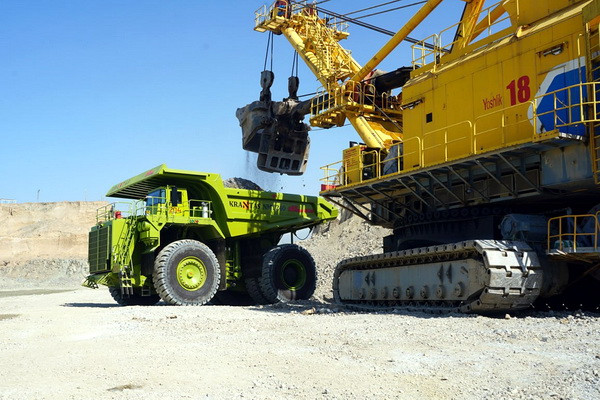
The Diplomat: Sanctions Against Gazprombank Threaten Expansion of Uzbekistan’s Copper Mine
The Diplomat: Sanctions Against Gazprombank Threaten Expansion of Uzbekistan’s Copper Mine
Tashkent, Uzbekistan (UzDaily.com) — The U.S. Treasury Department’s decision to impose sanctions on Gazprombank poses a potential major challenge to Uzbekistan’s growing mining industry, which has relied on the Russian bank for financing the expansion of the US$4.8 billion copper mine project, expected to nearly double the country’s copper production. This was reported by The Diplomat.
With Gazprombank now excluded from the international payment system, Uzbekistan risks disruptions in its flagship project to expand the Yoshlik mine, struggling to find alternative lenders or facing the threat of secondary sanctions.
The inclusion of Gazprombank in the U.S. sanctions list could also lead to significant financial losses for European mining, engineering companies, banks, and export credit agencies operating in Uzbekistan, continuing to do business with companies financed by Gazprombank.
All of Uzbekistan’s copper production comes from the vast mining complex near Tashkent, operated by the state-owned Almalyk Mining and Metallurgical Complex (AGMK). Currently, the company is overseeing the US$4.8 billion Yoshlik expansion project, which by 2026 aims to increase copper output by 78% to 264,000 tons per year, while also increasing gold production by 50% to 800,000 ounces. The company’s chairman stated that reforms would make AGMK "a leading global copper ore processor."
Uzbekistan is heavily dependent on Russia as a key trading partner, with remittances from Uzbek workers in Russia accounting for 18% of the country’s GDP. In May, Russian President Vladimir Putin visited Tashkent for a two-day state visit, during which the Yoshlik project was discussed as part of bilateral talks to deepen economic ties between the two countries.
Russia has been interested in the Yoshlik project since 2021, when Gazprombank and the state-owned Russian development bank VEB.RF agreed on US$2 billion worth of deals with AGMK to finance the purchase of Russian mining equipment for the expansion. In 2022, part of the US$800 million deal with VEB.RF was canceled after the U.S., EU, and UK imposed sanctions on the bank and its management following Russia’s full-scale invasion of Ukraine.
Now, with Gazprombank also under U.S. sanctions, AGMK risks losing its second major investor due to the sanctions and will likely be forced to seek refinancing options to fill the funding gap and avoid secondary U.S. sanctions.
AGMK’s development strategy, published in October before the sanctions were imposed, clearly showed that Gazprombank remained a major investor in the project, providing a US$1 billion credit line, of which US$670 million had already been used to purchase mining equipment from major European engineering companies, including Germany’s Thyssenkrupp, Switzerland’s ABB Group, and the UK’s Weir Group.
The U.S. decision to intensify sanctions against Russia by including Gazprombank in the sanctions list may lead to further sanctions-related and logistical issues for AGMK, potentially affecting European companies whose supplies to Uzbekistan were previously financed by the now-sanctioned bank.
In 2022, a UK delegation helped broker an export deal worth €14.2 million for the supply of equipment manufactured by the British engineering company Weir Group for use in the Yoshlik project.
In October 2024, the UK’s export agency, UK Export Finance, announced it would take on the risk and provide a guarantee for refinancing the loan, this time through the Spanish bank Santander. The collapse of the VEB.RF credit in 2022 likely pushed AGMK and Weir Group to refinance the deal with UK support through its export agency.
For AGMK, failure to refinance the Yoshlik project without Gazprombank’s involvement could result in secondary sanctions being imposed on the mine’s owner, effectively isolating the company while attempting to diversify its export supplies.